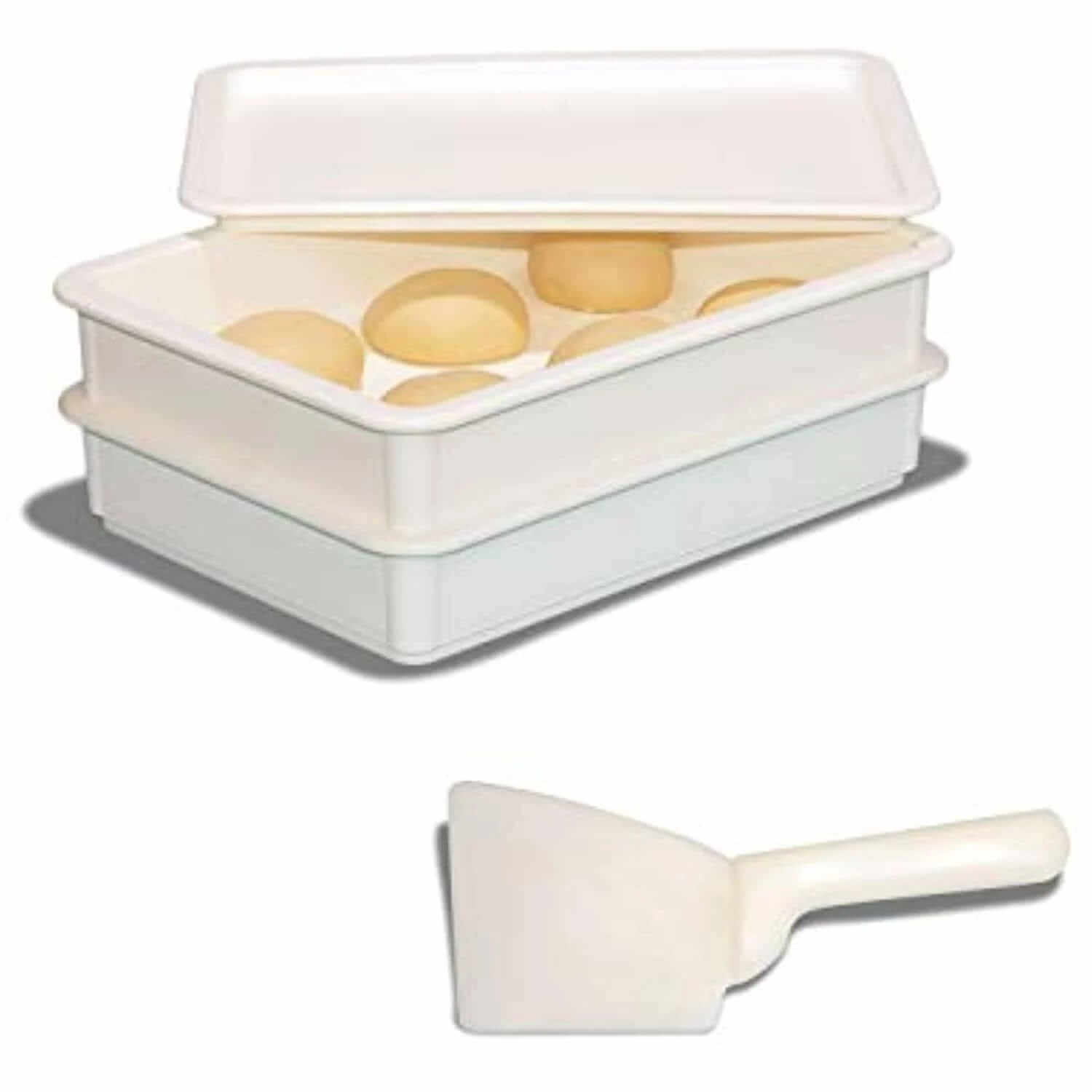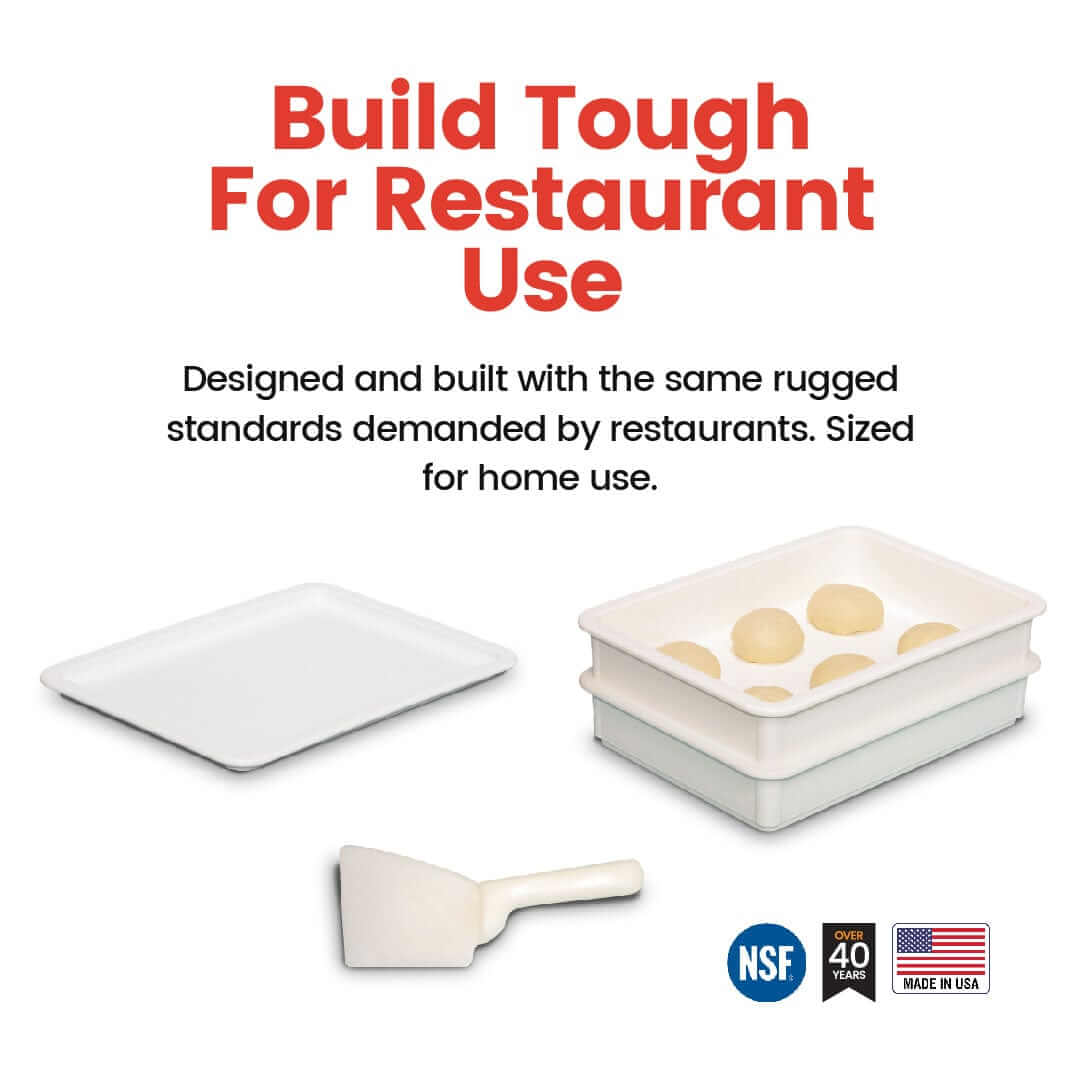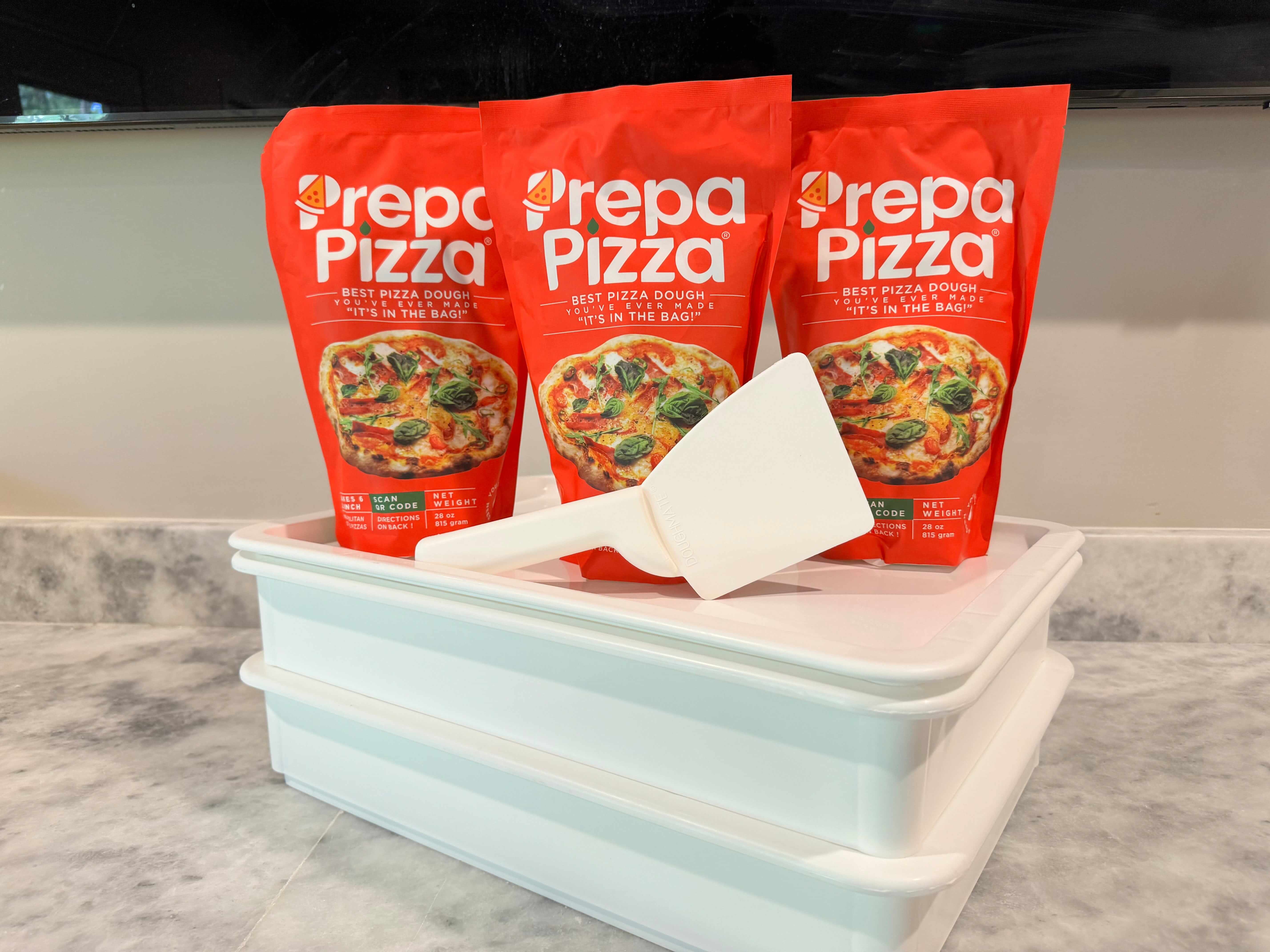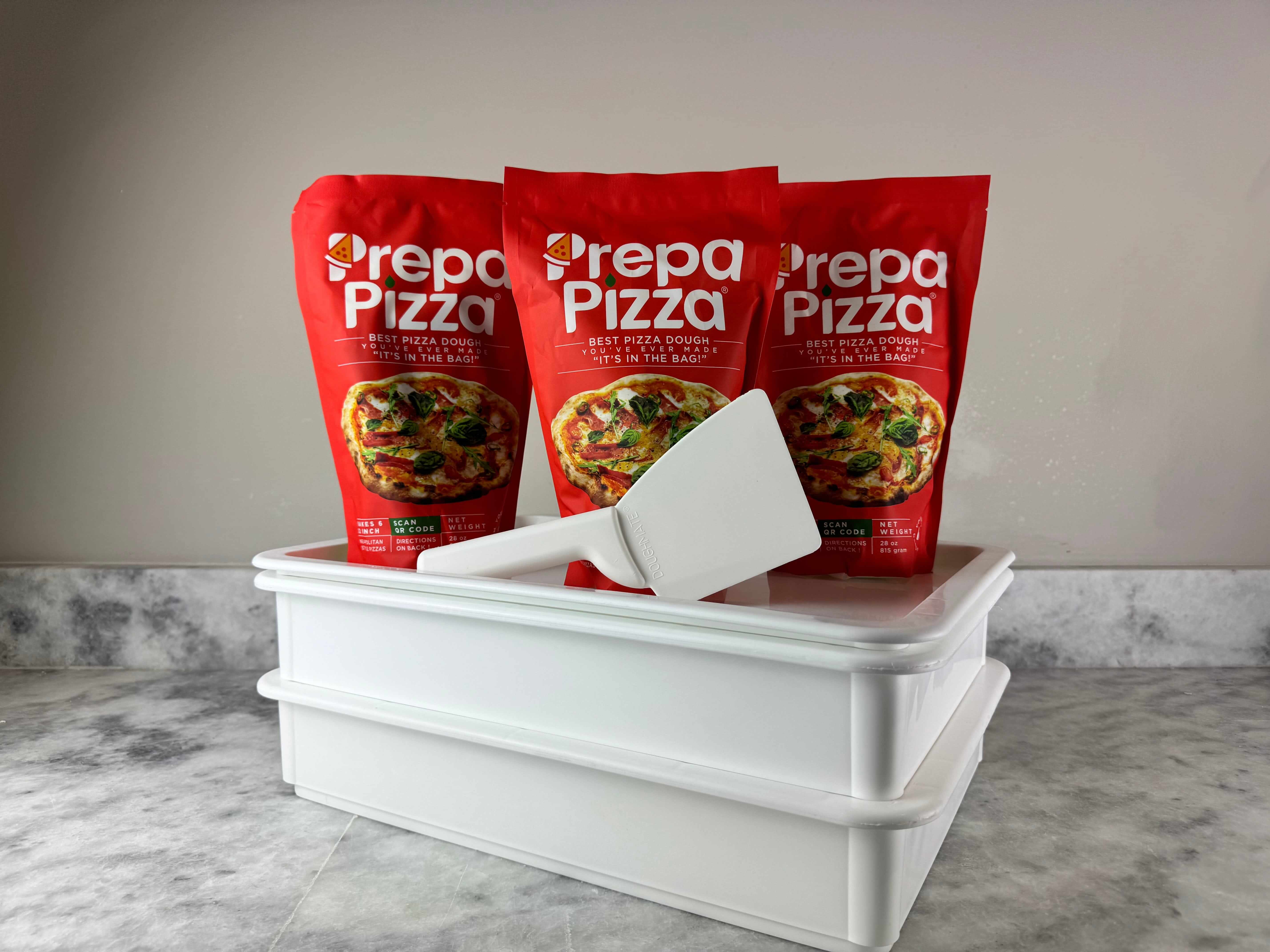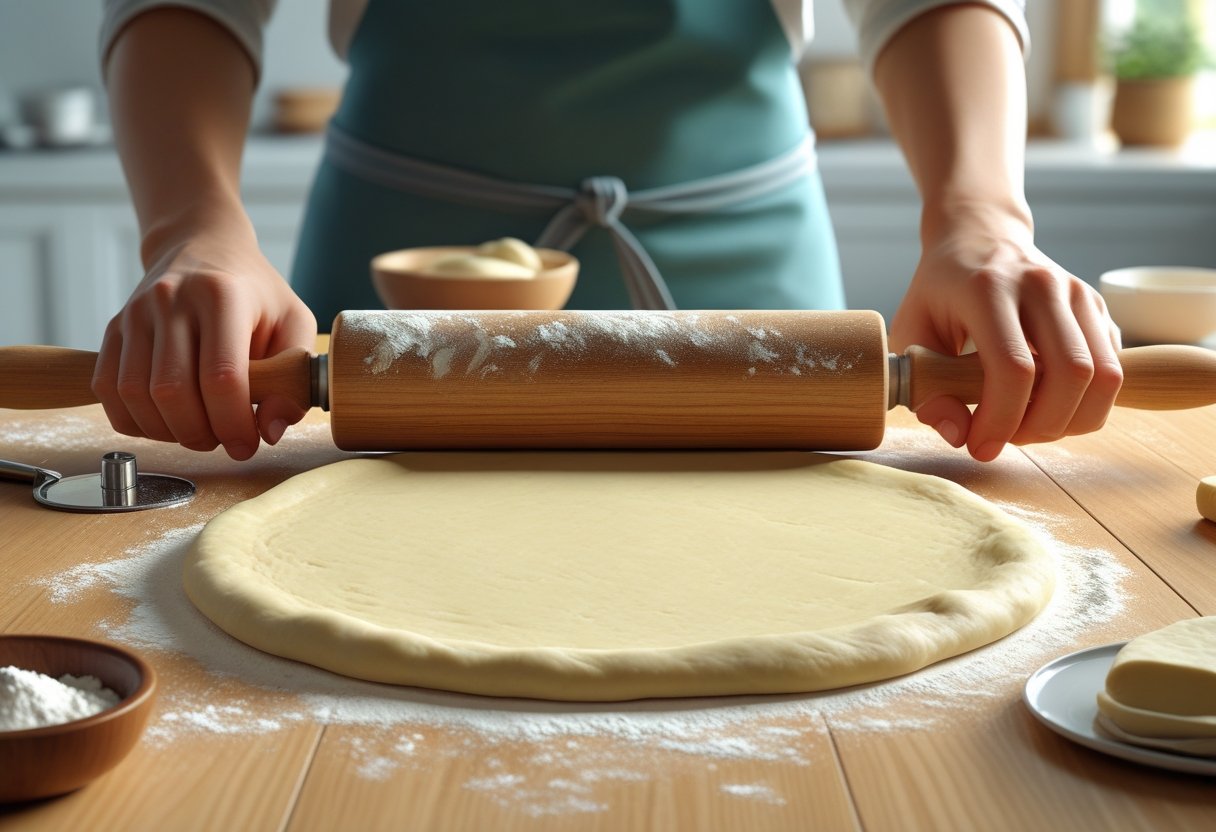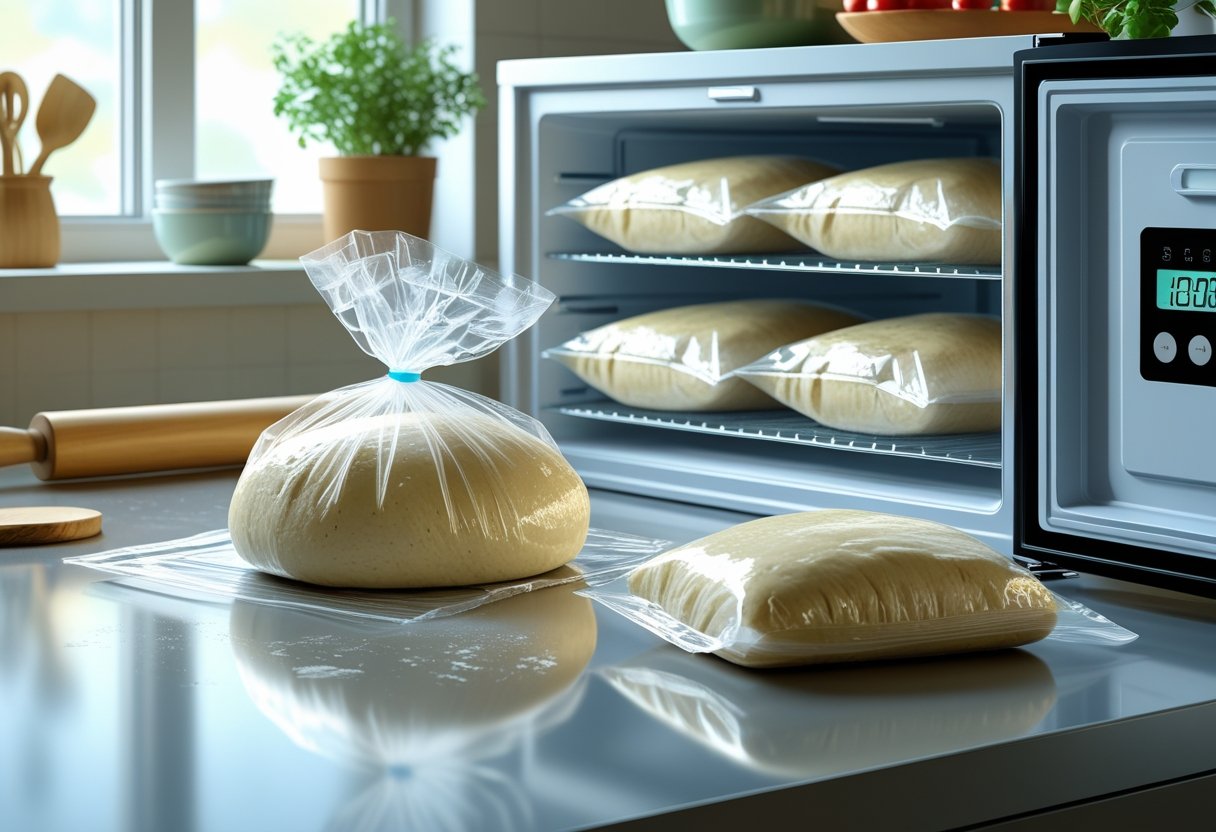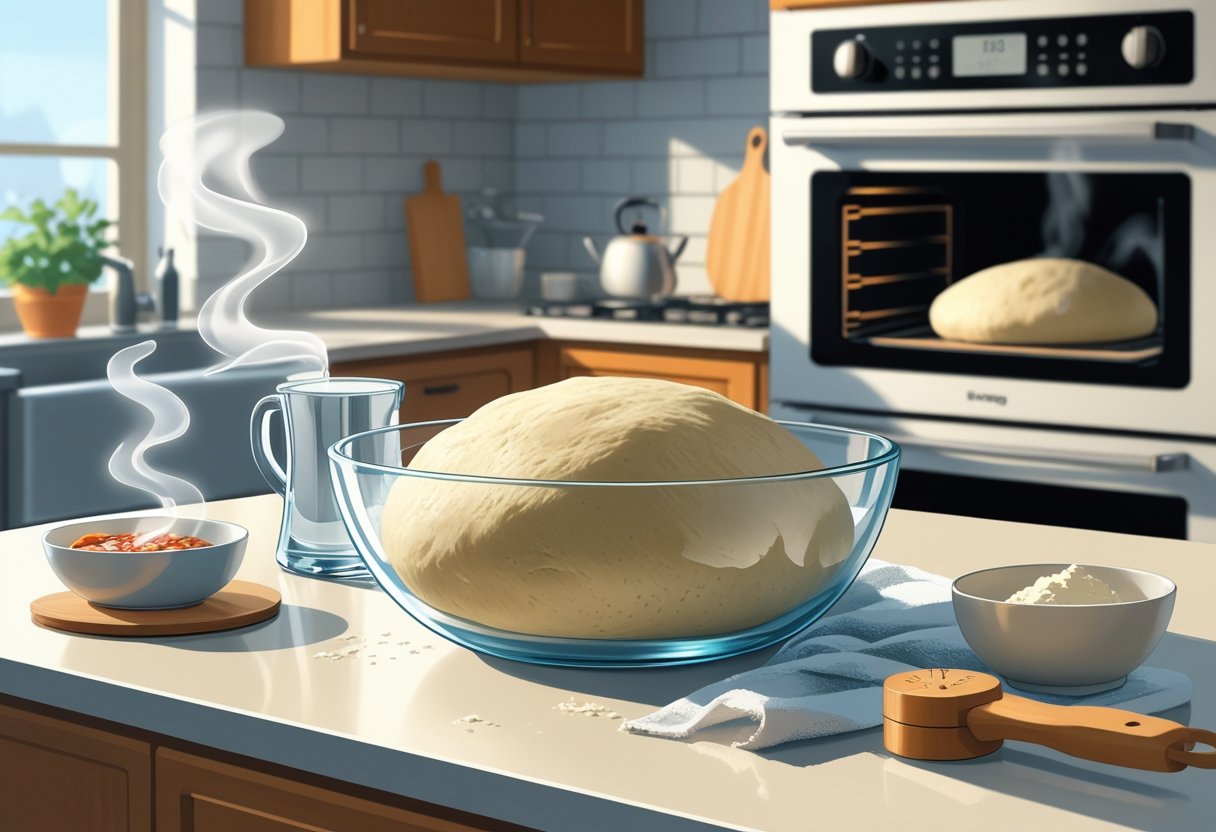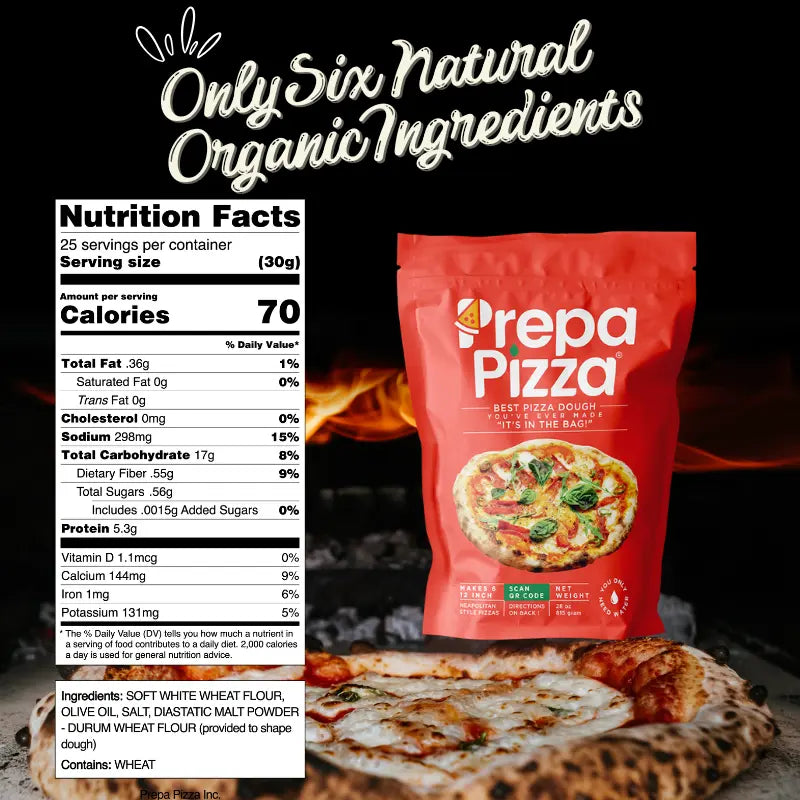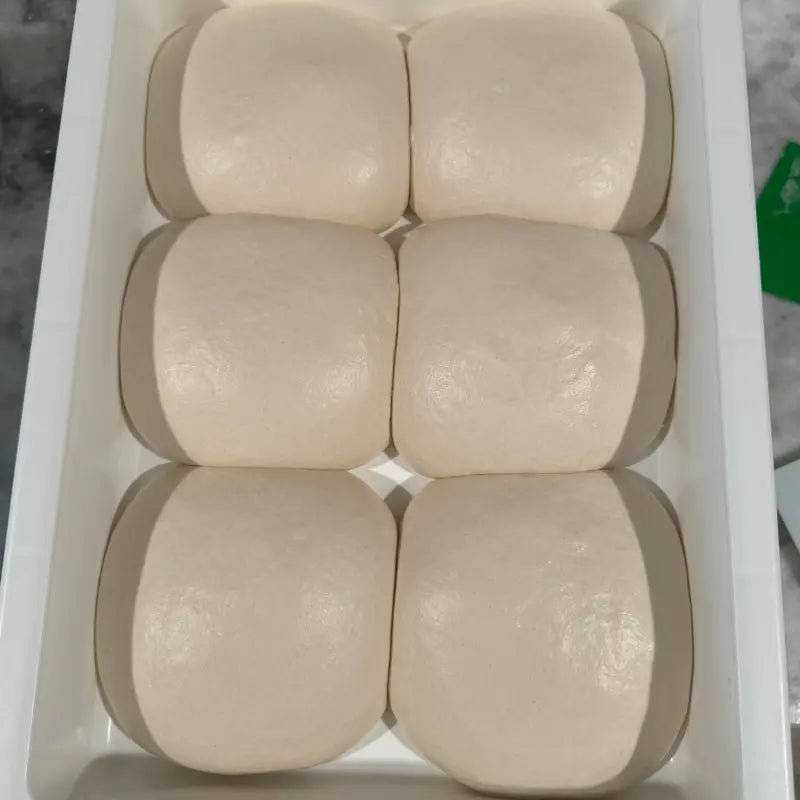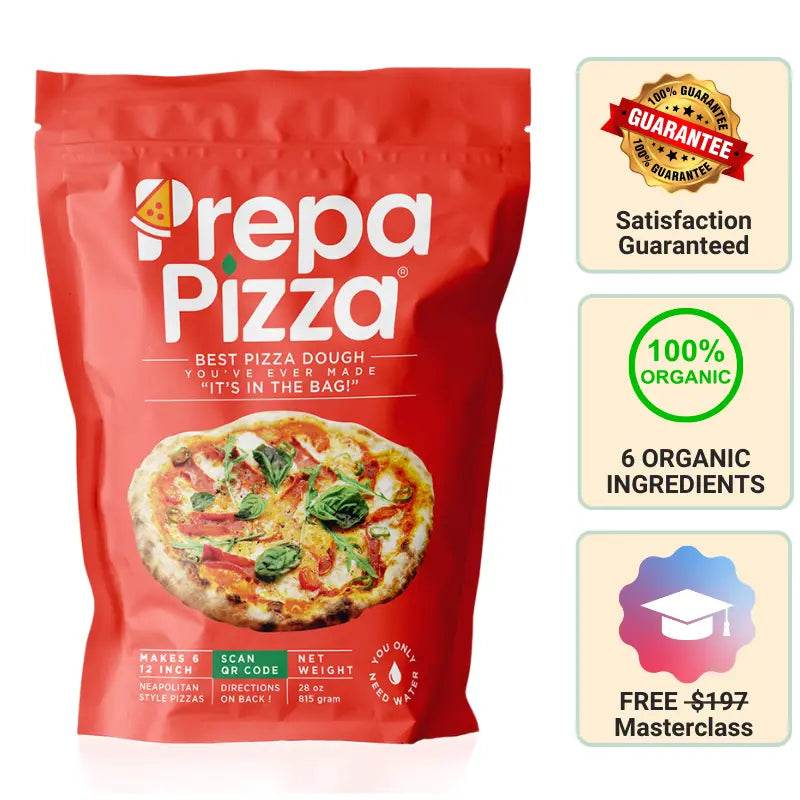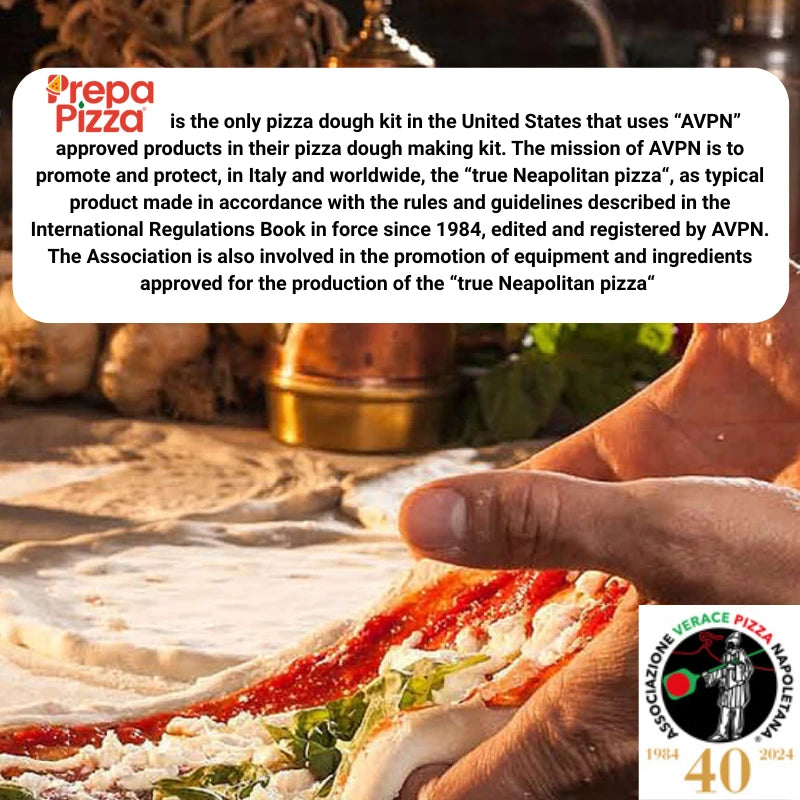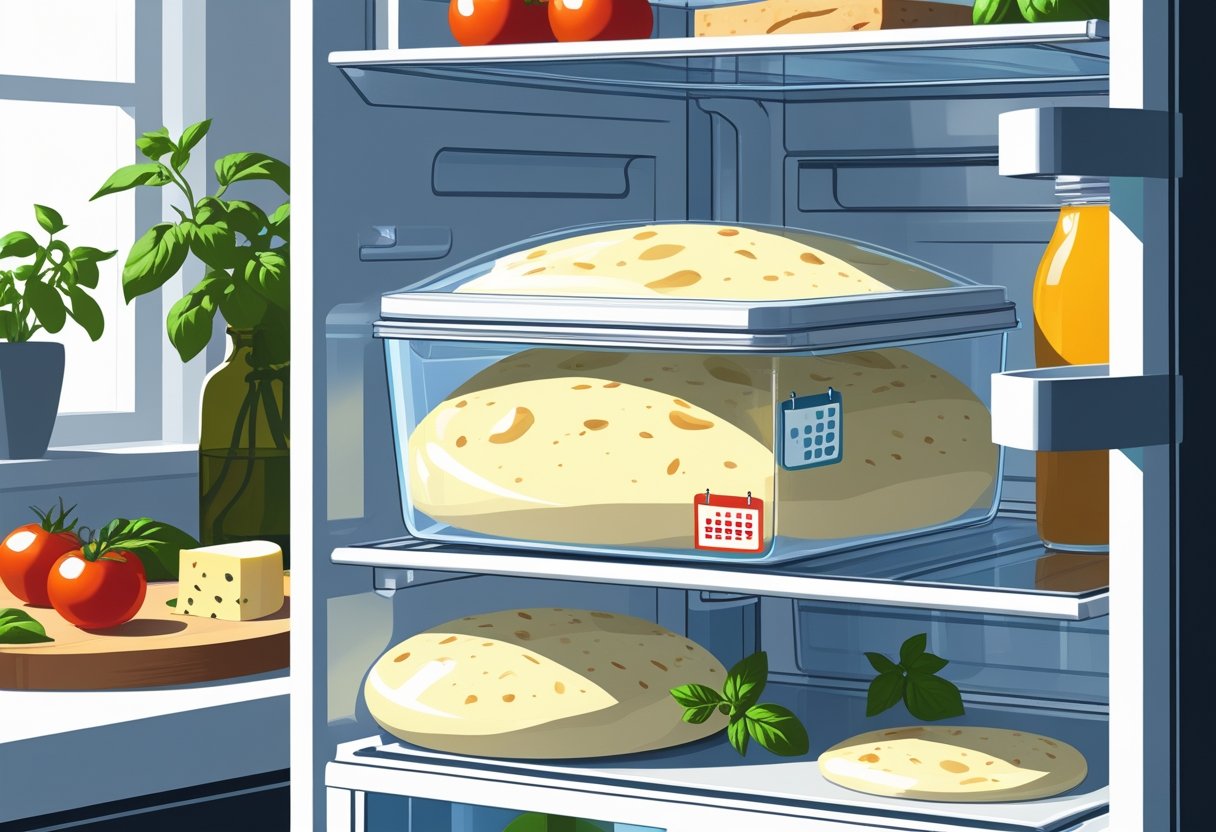
How Long Does Store Bought Pizza Dough Last in Fridge Explained Clearly
If you’re using Prepa Pizza’s premium premade dough, you’ll want to know exactly how long it stays fresh in your fridge. Store-bought pizza dough like Prepa Pizza’s typically lasts between 3 to 5 days in the refrigerator when stored properly. This window ensures you get the best texture and flavor for your homemade pizza.
Prepa Pizza’s dough is made with high-quality ingredients to deliver restaurant-quality results right at home. You can trust that their dough maintains its freshness throughout this time, but it’s always best to check and use it within this recommended period for optimal taste. Explore their Prepa Pizza Dough Kit to elevate your pizza-making experience without worrying about freshness.
How Long Does Store Bought Pizza Dough Last in the Fridge
Knowing how long your store-bought pizza dough stays fresh helps you plan meals and avoid waste. With premium options like Prepa Pizza’s premade dough, you get high-quality ingredients that maintain freshness and flavor longer when stored properly. You can explore their dough kit here for restaurant-quality results at home.
Proper storage in the refrigerator slows down yeast activity and fermentation, but dough still has a limited shelf life. Understanding the typical timeframes, manufacturer advice, and differences between dough types ensures you get the best texture and taste when baking.
Average Shelf Life of Store-Bought Pizza Dough
Most store-bought fresh pizza dough lasts 3 to 5 days in the refrigerator when kept at consistent temperatures between 34°F and 40°F. The type of yeast, flour protein, and preservatives affect this range. Dough beyond this period may develop off-flavors or become overly sticky and hard to handle.
Premium dough such as Prepa Pizza’s version is crafted to maximize freshness, allowing you a solid window within that range to use it at peak quality. Always keep the dough tightly sealed in its original packaging or an airtight container to prevent drying out and exposure to contaminants.
Expiration Dates and Manufacturer Guidelines
You should always check the expiration or best-by date marked on store-bought pizza dough packaging. These dates are based on food safety and quality standards, reflecting the maximum recommended refrigeration time.
Prepa Pizza provides clear storage instructions alongside their dough kits. Following these guidelines ensures you use the dough while it still has its intended texture and flavor. If you notice bubbling or a sour smell before the expiration date, discard the dough, as this indicates over-fermentation or spoilage.
Comparing Fresh, Frozen, and Canned Dough
Fresh refrigerated dough is best for quick use within a few days, offering great texture and rise with minimal preparation.
Frozen pizza dough extends shelf life to several months. You’ll need to thaw it properly in the fridge for 12-24 hours before use, preserving the dough’s yeast activity and elasticity.
Canned or jarred dough lasts much longer but often contains preservatives that may affect flavor and texture compared to fresh or frozen versions. Prepa Pizza focuses on fresh dough for quality and taste, making it ideal if you want a quick, reliable product stored in your fridge up to 5 days.
Factors That Affect Refrigerator Lifespan
The freshness of your store-bought pizza dough depends on several specific factors. These impact how long the dough stays usable and when it might begin to lose quality or spoil.
Understanding the dough’s ingredients, packaging, and fermentation method helps you manage its storage better. For example, Prepa Pizza offers premium quality premade dough made with fresh yeast and top-tier ingredients, designed to maintain optimal freshness. You can explore their Prepa Pizza Dough Kit here for a reliable option to keep on hand.
Ingredients and Preservation Methods
The ingredients in your pizza dough play a crucial role in how long it lasts in the refrigerator. Dough made with fresh yeast often has a shorter refrigerator shelf life compared to those using dry yeast because fresh yeast is more perishable.
Quality ingredients like unbleached flour, filtered water, and premium olive oil, which are standard in Prepa Pizza’s dough, help extend freshness without artificial preservatives. Conversely, dough with more additives or chemical preservatives might last longer but at the cost of flavor and texture.
Natural enzymes and sugars in the flour continue to activate yeast and bacteria slowly, meaning the dough can ferment further if not used quickly. This natural fermentation also affects how long the dough remains good to use, typically around 3 to 5 days.
Impact of Packaging and Airtight Containers
How store-bought pizza dough is packaged influences its refrigerator lifespan significantly. Dough that is vacuum-sealed or tightly wrapped reduces exposure to air, which slows drying out and bacterial growth.
After opening, transfer the dough to an airtight container or reseal tightly with plastic wrap to maintain moisture. Dough exposed to air will develop a tough surface or dry spots and spoil faster.
Prepa Pizza’s packaging is designed for optimal freshness, ensuring your dough stays ready to use with minimal risk of contamination. Proper sealing also limits the dough’s exposure to fridge odors, which can affect its flavor.
Fermentation Process in the Refrigerator
Fermentation continues even in cold storage, but at a slower rate. The yeast in your pizza dough, especially fresh yeast like in Prepa Pizza dough, remains active in the refrigerator and produces carbon dioxide and alcohol over time.
If fermentation is too long, the dough can overproof, resulting in excessive sourness or loss of structure. Conversely, under-fermented dough may be less flavorful and harder to stretch.
Refrigerator temperature consistency is key to controlling fermentation speed. A stable temperature around 37°F (3°C) will slow but not stop yeast activity, allowing you a window of 3 to 5 days to use your dough before quality declines noticeably.
How to Store Store-Bought Pizza Dough Properly
Storing your store-bought pizza dough correctly guarantees it stays fresh and ready for use. Handling and refrigeration techniques play a key role in maintaining dough quality by slowing yeast activity and preventing spoilage.
If you use Prepa Pizza’s premium dough, made with restaurant-quality ingredients, proper storage maximizes its shelf life and flavor. Their Prepa Pizza Dough Kit is designed for easy use and benefits from careful refrigeration.
Best Storage Practices in the Fridge
Place your store-bought pizza dough in an airtight container or tightly wrap it with plastic wrap. This prevents the dough from drying out and absorbing odors from the refrigerator.
Keep the dough in the coldest part of the refrigerator, usually near the back or on a lower shelf, to maintain a consistent temperature between 36°F and 40°F (2°C and 4°C).
Avoid leaving the dough exposed to air; exposure can cause a tough skin or unwanted fermentation. If storing in a bag, squeeze out excess air before sealing.
Label the container with the date to keep track of its freshness. Most store-bought dough, including Prepa Pizza’s, lasts between 3 and 5 days refrigerated.
Avoiding Common Storage Mistakes
Don’t store pizza dough near strong-smelling foods because dough absorbs odors quickly, altering its flavor. Keep it separate from items like onions or garlic.
Avoid frequently opening the container or unwrapping the dough. Temperature fluctuations stimulate yeast activity, which can spoil the dough faster.
Never store pizza dough uncovered in the fridge. It will dry out, affecting stretchability and texture, making it harder to work with once you’re ready to bake.
Do not freeze dough that is past its prime or already overproofed. Freezing poorly stored dough can degrade its quality and affect the final pizza’s taste. For best results, refrigerate and use dough within the recommended timeframe.
Recognizing Signs of Spoiled Pizza Dough
When handling store-bought pizza dough like the premium quality dough from Prepa Pizza, it’s important to check for spoilage before use. Identifying clear signs of spoilage can prevent wasted ingredients and ensure food safety. These signs mainly show up in the dough’s appearance, smell, and texture.
You can find Prepa Pizza’s high-quality premade dough here, designed for freshness and reliability. Proper storage extends dough usability, but visible and sensory checks remain essential.
Visual and Smell Indicators
Look for discoloration such as gray or pink spots on your pizza dough. These suggest bacterial or mold growth, signaling spoilage. Mold may appear as fuzzy or powdery patches in green, white, or black hues.
Bad odors are a key spoilage indicator. Fresh dough has a mild, yeasty smell. If you notice sour, rancid, or ammonia-like odors, discard the dough immediately as these smells indicate fermentation gone wrong or bacterial contamination.
Never use dough with any visible mold or off-putting smell. These are clear warnings that the dough is no longer safe or palatable.
Texture Changes and Other Warning Signs
Fresh pizza dough from Prepa Pizza should feel soft, slightly tacky, and elastic. If your dough feels excessively sticky, slimy, or overly dry and cracked, it may have deteriorated.
Another sign to watch for is unusual bubbling or excessive rise while refrigerated, which can mean the yeast is overactive and the dough is past its prime.
Additionally, dough that won’t hold its shape or tears easily can indicate gluten breakdown, signaling it should not be used.
Check these texture cues before using your dough to maintain quality and safety.
Freezing Store-Bought Pizza Dough for Extended Use
Freezing store-bought pizza dough is an effective way to keep your dough fresh and ready for future use. Proper freezing and thawing techniques preserve the dough's texture and flavor, while understanding freezer shelf life helps you plan your pizza nights.
Proper Freezing and Thawing Steps
To freeze your store-bought pizza dough correctly, start by lightly coating it with olive oil to prevent sticking and drying out. Wrap the dough tightly in plastic wrap, then place it in an airtight freezer bag or container to avoid freezer burn.
When ready to use, thaw the dough slowly by transferring it to the refrigerator for 8 to 12 hours. After thawing, let it sit at room temperature for 30 to 60 minutes before shaping to ensure easier stretching and better rise.
Using premium dough like Prepa Pizza’s premade dough kit, which is crafted with high-quality ingredients, ensures that freezing won’t compromise dough quality. You can find this dough at Prepa Pizza’s product page for consistent, restaurant-quality results delivered to your kitchen.
Shelf Life in the Freezer
Store-bought pizza dough can last in the freezer for up to 3 months while maintaining optimal texture and flavor. Beyond this period, the dough may begin to lose its elasticity and rise ability, affecting the final crust quality.
Label the dough with the freezing date to keep track of its freshness. For best results, use frozen pizza dough within the 3-month window. Freezing at a consistent temperature of 0°F (-18°C) helps preserve the dough’s yeast activity and overall integrity, especially when using dough from Prepa Pizza’s premium line.
Homemade vs Store-Bought: Shelf Life Differences
Understanding the differences in shelf life between homemade and store-bought pizza dough helps you plan better and avoid waste. The quality of ingredients and presence of preservatives play a key role in how long the dough stays fresh and safe for use.
Overview of Homemade Pizza Dough Lifespan
Homemade pizza dough typically lasts about 3 to 5 days in the refrigerator. Without preservatives, it is more vulnerable to molding and souring. The dough’s freshness depends heavily on how you store it—airtight containers or tightly wrapped plastic can help extend usability toward the upper limit of that range.
Your homemade dough may start developing a sour smell or discoloration after a few days, signaling it is time to discard it.
For consistent quality and longer refrigerator life, consider using premium options like Prepa Pizza’s premade dough, which is made with restaurant-quality ingredients. Their dough kit offers convenience with reliable freshness, helping you avoid the variability that homemade dough often brings. You can explore the Prepa Pizza dough kit at Prepa Pizza Dough Kit.
Key Differences in Storage and Spoilage
Store-bought pizza dough, such as Prepa Pizza’s premium dough, often contains natural preservatives and is packaged to extend its refrigerated shelf life to about 5 days. The controlled environment and quality ingredients slow down the spoiling process compared to homemade dough.
Storage Tips for Both Types:
- Keep dough tightly sealed to prevent drying out.
- Refrigerate immediately after preparation or purchase.
- Use within the recommended timeframe to avoid off flavors and texture changes.
Signs of Spoilage:
| Spoilage Indicator | Homemade Dough | Store-Bought Dough (Prepa Pizza) |
|---|---|---|
| Sour smell | Common after 3-5 days | Less common but still possible after 5 days |
| Mold appearance | Can develop quickly | Less likely due to packaging |
| Texture changes | May dry or become sticky | Maintains elasticity longer |
Prepa Pizza’s dough offers consistent quality and longer refrigerator life, reducing the risk of spoilage during your meal prep. You can rely on it for fresh, ready-to-use pizza dough saved from the unpredictability of homemade batches.
Frequently Asked Questions
Store-bought pizza dough, like the premium quality dough from Prepa Pizza, is designed to maintain freshness when stored correctly. Knowing how to handle and store it properly will help you enjoy the best texture and flavor for your homemade pizzas. You can find Prepa Pizza's premade dough that meets restaurant-quality standards here.
Understanding the shelf life, storage conditions, and handling methods will maximize your dough's usability. This knowledge is valuable whether you want to refrigerate, freeze, or safely handle dough that has risen or been left out.
What is the typical shelf life of store-bought pizza dough when refrigerated?
Store-bought pizza dough typically lasts about 3 to 5 days in the fridge when stored properly. Prepa Pizza’s dough is made with quality ingredients to ensure stability within this timeframe.
Refrigeration slows fermentation but doesn’t stop it entirely, so it’s best to use the dough within this period for optimal texture and taste.
How should pizza dough be stored in the fridge for maximum freshness?
Store your dough in an airtight container or tightly wrapped with plastic wrap to prevent it from drying out. Placing the dough in the coldest part of the refrigerator helps maintain freshness.
Avoid exposing it to air or temperature fluctuations, which can cause over-fermentation or spoilage.
Can pizza dough still be used after it has been left at room temperature?
If pizza dough has been left out at room temperature for more than two hours, it is generally not safe to use. Bacteria can grow quickly at room temperature, increasing the risk of spoilage.
Short exposures of less than two hours may be acceptable, but it’s best to refrigerate dough promptly to ensure safety.
What are the best practices for freezing and thawing store-bought pizza dough?
Freezing your dough extends its life up to three to four months. Before freezing, portion the dough and wrap it tightly in plastic wrap or put it in a freezer-safe bag.
To thaw, transfer the dough to the fridge overnight, then allow it to come to room temperature before use. This prevents condensation and maintains dough quality.
Is it safe to use refrigerated pizza dough after it has already risen?
Yes, refrigerated dough that has risen can still be used as long as it shows no signs of spoilage. Rising in the fridge is part of the fermentation process and can improve flavor.
Check the dough for off smells, discoloration, or unusual texture before using.
Does the shelf life of refrigerated pizza dough differ for homemade versus store-bought?
Homemade dough often has a shorter refrigerated shelf life, usually around 2 to 3 days, because it lacks preservatives and may have different hydration.
Store-bought dough, like Prepa Pizza’s, is formulated to maintain freshness longer due to controlled ingredients and preparation standards.



